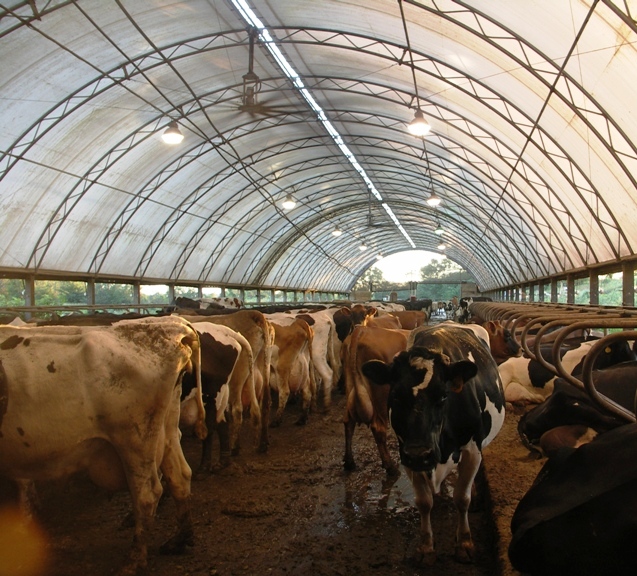We're Ignoring One of the Biggest Drivers of Climate Change

By:
The U.S. government claims it cares about climate change, but it's ignoring one of the top drivers of carbon: eating meat. When asked to encourage Americans to eat less meat in order to help the environment on Tuesday, the government said no.
RELATED: Why You Should Think Twice About Eating Beef
What does meat have to do with it?
In February, the Dietary Guidelines Advisory Committee recommended that Americans consider the environment when they choose what they eat — particularly in the case of red meat, because of the amount of land, food and water that is required to produce it.
 Wikimedia - wikipedia.org
Wikimedia - wikipedia.org
The U.S. Department of Agriculture (USDA) disagreed with the panel, saying Tuesday that sustainability is important, but their job is to provide “nutritional and dietary information and guidelines.”
"We do not believe that the 2015 DGAs are the appropriate vehicle for this important policy conversation about sustainability," they said on the USDA blog.
RELATED: We're on the Verge of A Meat Crisis
How does agriculture affect the environment?
Agriculture has a significant impact on global warming, creating 15 percent of all emissions. Half of those emissions are from livestock. And, when you drive past a cornfield, there's a high chance that food isn't for people. It's for animals.
This is problematic as the world population begins to grow, and scientists look for ways to feed everyone. Professor Tim Benton is one of those scientists. He specializes in sustainable agriculture, and wants to find out how people around the world can get the food they need, while also reducing the effect that agriculture has on climate change.
How can you help?
Benton told the Guardian: “The biggest intervention people could make towards reducing their carbon footprints would not be to abandon cars, but to eat significantly less red meat.”
The United Nations agrees with Benton. A recent report advocates for a global shift to a vegan diet. It’s vital to lower meat consumption, the report says, to save the world from hunger, fuel poverty, and further impacts of climate change.
RELATED: Why Your Parents Had an Easier Time Being Thin
“Impacts from agriculture are expected to increase substantially due to population growth increasing consumption of animal products. Unlike fossil fuels, it is difficult to look for alternatives: people have to eat. A substantial reduction of impacts would only be possible with a substantial worldwide diet change, away from animal products.”
